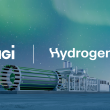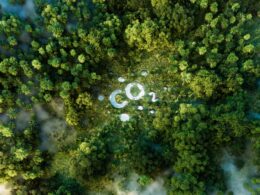A government-appointed panel of experts has largely endorsed Japan’s proposed energy policy which aims to significantly increase renewable energy use to meet 40-50% of electricity needs by 2040 while maximising nuclear power to address growing energy demands fuelled by artificial intelligence and decarbonisation targets.
The Industry Ministry presented the draft policy for review to a panel of 16 experts, primarily from pro-nuclear business, academic, and civil groups. The plan marks a shift from the nuclear phaseout adopted after the 2011 Fukushima Daiichi disaster, which caused widespread displacement and left lasting anti-nuclear sentiment. Instead, it calls for nuclear power to contribute 20% of the energy mix by 2040, up from 8.5% in 2023, while coal-fired power will be cut to 30-40% from nearly 70% as in the previous year. Renewable energy will expand to 40-50%, compared to 22.9% last year.
The new proposal updates the 2021 energy policy and will undergo public consultation before Cabinet approval, expected by March. The existing targets for 2030, set at 20-22% nuclear energy, 36-38% renewables, and 41% fossil fuels, would be replaced by the 2040 goals.
Growing demand for low-carbon energy sources such as renewables and nuclear has been driven by energy-intensive data centres and semiconductor factories. Industry Minister Yoji Muto emphasized the importance of diversifying energy sources to ensure security.
“How we secure decarbonised energy determines Japan’s future growth,” Muto said. “It’s time to stop debating renewables versus nuclear. We must maximise both.”
Japan has committed to achieving net zero carbon emissions by 2050 and reducing emissions by 73% by 2040, compared to 2013 levels. The draft plan positions renewables as the primary energy source, supported by innovations in solar batteries and portable solar panels. However, it acknowledges risks, including potential shortfalls in investment and cost reductions for renewables. Critics noted the lack of a clear roadmap for phasing out fossil fuels or meeting the ambitious 2040 targets.
To reach the nuclear target, the plan calls for accelerating reactor restarts under post-Fukushima safety standards and constructing next-generation reactors at sites with decommissioned units. Currently, only 14 of Japan’s 33 operational reactors are online, and experts warn that the slow pace of regulatory approvals could jeopardise the 20% target.
Despite concerns about feasibility, Japan continues pursuing advanced nuclear technology and a reprocessing program for spent fuel to achieve a complete nuclear fuel cycle, underscoring its reliance on nuclear energy as part of its decarbonisation strategy.





















